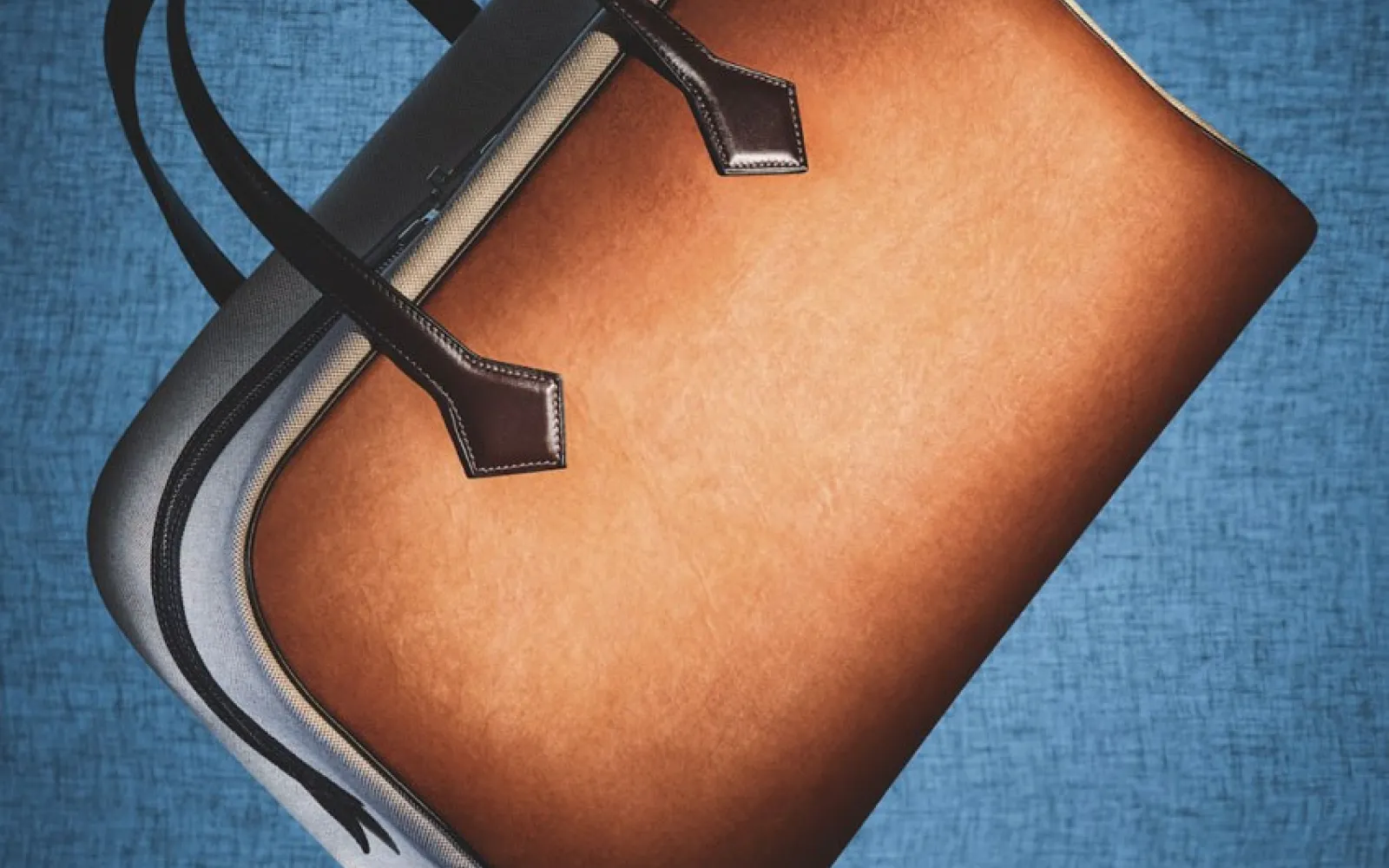

MycoWorks
Making a novel, beautiful alternative to leather
For many people, there is no greater symbol of luxury and quality than Hermès, the nearly 200-year-old French fashion house. Known for its meticulous craftsmanship and handmade leather goods, Hermès handbags are treated as investment pieces that cause even celebrities to endure a waiting list just to get that coveted Kelly or Birkin.
But as a new generation forces us to re-examine the impact of our meat and leather addictions on our environment, how can companies like Hermès, with strong reputations for quality and luxury, adapt? No one wants a pleather Birkin. Hermès shouldn’t need to make one.
For companies like Hermès, where quality is one of the most defining characteristics of the brand, looking toward sustainability is a careful balance. How can you preserve the performance and feel of leather that has been so critical to the success of the brand over the years while also reducing the impact of each bag, wallet and accessory on our planet? It’s a painstaking process and one we’re excited the company undertook with DCVC Bio portfolio company MycoWorks.
In Mycoworks we saw a perfectly skill-balanced team using biology to develop materials of unmatched strength and feel. We are delighted that following three years of collaborative effort, Hermès will release (with the fall collection) a reimagined, sustainable version of its Victoria travel bag. The Victoria will be made of canvas, calfskin and Sylvania materials. Sylvania is MycoWorks’ Fine Mycelium, a patented cultivation process that engineers the naturally interwoven threads of mycelium to produce proprietary, interlocking structures which provides the same performance, quality and aesthetics as leather, without the use of animals or plastic.
Fine Mycelium is produced in the MycoWorks facility. It is then tanned and finished in France by the Hermès tanners to further refine its strength and durability, and shaped in the workshops by the Hermès craftspeople.
For luxury goods companies collaborating with MycoWorks, Fine Mycleium is a way to introduce more sustainable practices without compromising on the quality, durability and luxury that make their objects so beloved by enthusiasts and collectors across the world.
At its core, MycoWorks is a biotech company, manipulating nature and biotechnology to create a new generation of materials. But simply using science to create new, more sustainable materials isn’t what makes MycoWorks’ Fine Mycelium material fit for luxury goods. It’s the company’s commitment to transforming those raw materials and working until the end result is the highest quality, most durable and most luxurious feeling material that made this partnership possible. Like Hermès, MycoWorks strives to produce materials that can be used to create enduring products – coveted heirlooms which can be passed down through the generations.
DCVC Bio and DCVCs commitment to improving environmental outcomes through technology is perfectly embodied in Mycowork’s success and it’s one of the reasons we were so enthusiastic about leading the Series A and Series B investments in MycoWorks. We see companies making audacious bets on biotech’s transformative power in life sciences and agriculture every day. From AbCellera producing an effective treatment for COVID-19 in less than 100 days to Pivot Bio reawakening soil microbes to replace synthetic fertilizer, or Verdant Robotics using robotics systems to vastly reduce the amount of chemicals on our crops, these companies are reshaping the world around us for the benefit of our society.
We believe MycoWorks is another of these transformative companies, and collaborations with design houses like Hermès only reinforce that belief. Hermès may be beyond the reach of all but the wealthiest among us, but its decision to put its reputation for quality, durability and craftsmanship behind MycoWorks materials could have implications for everyone. We hope one day soon we’ll all be wearing Fine Mycelium.




